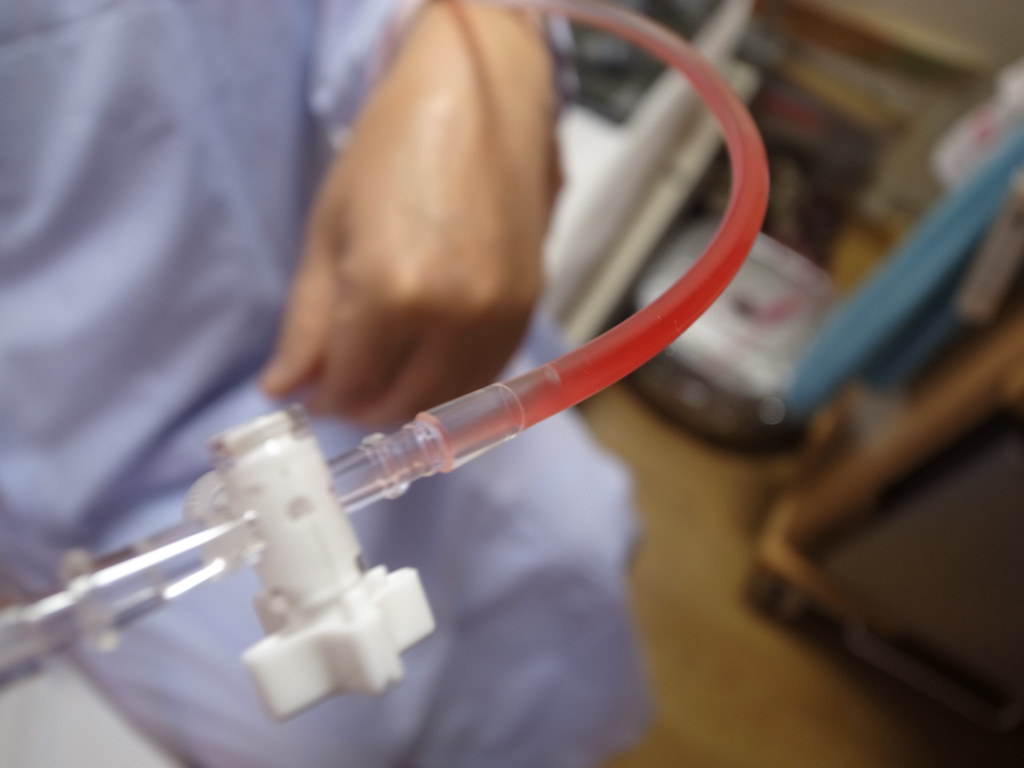AstraZeneca plc (LON:AZN) Imfinzi plus chemotherapy significantly improved pathologic complete response in AEGEAN Phase III trial in resectable non-small cell lung cancer.
Positive high-level results from a planned interim analysis of the AEGEAN Phase III trial showed treatment with AstraZeneca’s Imfinzi (durvalumab) in combination with neoadjuvant chemotherapy before surgery demonstrated a statistically significant and meaningful improvement in pathologic complete response (pCR) compared to neoadjuvant chemotherapy alone for patients with resectable non-small cell lung cancer (NSCLC).
A statistically significant improvement in major pathologic response (MPR) was also observed. The trial will continue as planned to assess the additional primary endpoint of event-free survival (EFS) to which the Company, investigators and participants remain blinded.
The safety and tolerability of adding Imfinzi to neoadjuvant chemotherapy was consistent with the known profile for this combination and did not decrease the number of patients able to undergo successful surgery versus chemotherapy alone.
Up to 30% of all patients globally with NSCLC are diagnosed early enough to have surgery with curative intent.1-3 However, only around 56-65% of patients with Stage II disease will survive for five-years. This decreases to 24-41% for patients with Stage III disease.4
These pCR data will be shared with global health authorities and presented at a forthcoming medical meeting when EFS results are available.
AstraZeneca has several ongoing registrational trials focused on testing Imfinzi in earlier stages of lung cancer, including in resectable NSCLC (ADJUVANT BR.31) and unresectable NSCLC (PACIFIC-2, 4, 5, 8 and 9), and in limited-stage small cell lung cancer (SCLC) (ADRIATIC).
Imfinzi is approved in the curative-intent setting of unresectable Stage III NSCLC in patients whose disease has not progressed after chemoradiotherapy in the US, Japan, China, across the EU and many other countries, and is the global standard of care in this setting based on the PACIFIC Phase III trial. Imfinzi is also approved in the US, EU, Japan, China and many other countries around the world for the treatment of extensive-stage SCLC based on the CASPIAN Phase III trial.
Notes
Lung cancer
In 2020, an estimated 2.2 million people were diagnosed with lung cancer worldwide.5 Lung cancer is the leading cause of cancer mortality among men and women and accounts for about one-fifth of all cancer-related deaths.5 Lung cancer is broadly split into NSCLC and SCLC, with 80-85% classified as NSCLC.6 The majority of NSCLC patients are diagnosed with advanced disease while approximately 25-30% present with resectable disease at diagnosis. 1-2 Early-stage lung cancer diagnoses are often only made when the cancer is found on imaging for an unrelated condition.7-8
For patients with resectable tumours, the majority of patients eventually develop recurrence despite complete tumour resection and adjuvant chemotherapy.
AEGEAN
AEGEAN is a randomised, double-blind, multi-centre, global Phase III trial evaluating Imfinzi as perioperative treatment for patients with resectable Stage IIA-IIIB (tumours greater than or equal to 4cm or node positive) NSCLC with no EGFR or ALK genomic tumour aberrations, irrespective of PD-L1 expression. Perioperative therapy includes treatment before and after surgery, also known as neoadjuvant/adjuvant therapy. In the trial, 802 patients were randomised to receive a 1500mg fixed dose of Imfinzi every three weeks plus chemotherapy or placebo plus chemotherapy for four cycles prior to surgery, followed by Imfinzi or placebo every four weeks (for up to 12 cycles) after surgery.
In the AEGEAN trial, the primary endpoints are pCR, defined as no viable tumour following neoadjuvant therapy, and EFS, defined as the time from randomisation to an event like tumour recurrence or progression. At this interim analysis EFS was not assessed. Key secondary endpoints are MPR, defined as residual viable tumour of less than or equal to ten percent following neoadjuvant therapy, disease-free survival, overall survival, safety and quality of life. The trial is being conducted across 264 centres in more than 25 countries including in the US, Canada, Europe, South America and Asia.
Imfinzi
Imfinzi (durvalumab) is a human monoclonal antibody that binds to the PD-L1 protein and blocks the interaction of PD-L1 with the PD-1 and CD80 proteins, countering the tumour’s immune-evading tactics and releasing the inhibition of immune responses.
As well as global approvals in lung cancer, Imfinzi is approved for previously treated patients with advanced bladder cancer in several countries.
Since the first approval in May 2017, more than 100,000 patients have been treated with Imfinzi.
As part of a broad development programme, Imfinzi is being tested as a single treatment and in combinations with other anti-cancer treatments for patients with SCLC, NSCLC, bladder cancer, several GI cancers, ovarian cancer, endometrial cancer and other solid tumours.
In the past year, Imfinzi combinations have resulted in positive Phase III trials in multiple additional cancer settings including; unresectable advanced liver cancer (HIMALAYA), biliary tract cancer (TOPAZ-1) and metastatic NSCLC (POSEIDON) and the data are under review with global health authorities.
Susan Galbraith, Executive Vice President, AstraZeneca Oncology R&D, said: ”Treating resectable lung cancer early provides the best chance for a cure, yet lung cancer will still recur within five years for the majority of patients despite chemotherapy and successful surgery. Engaging the immune response with Imfinzi both before and after surgery is an exciting new strategy, and we hope these early findings from AEGEAN will lead to improved survival for lung cancer patients in this potentially curative setting.”








































